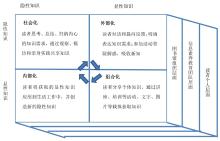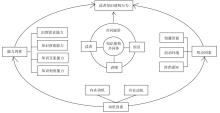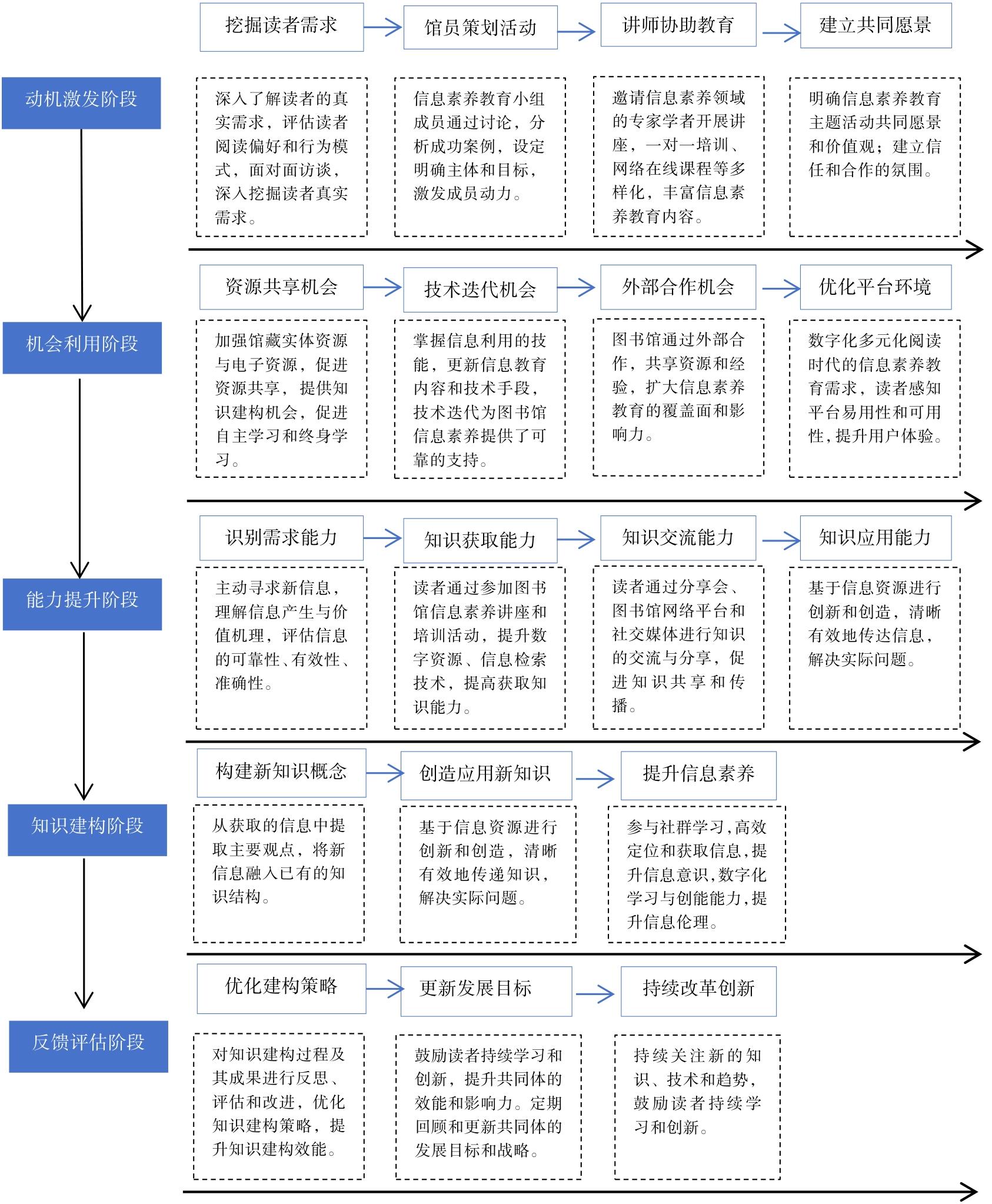| 1 |
IFLA. IFLA strategy 2024-2029[EB/OL]. [2024-07-28].
|
| 2 |
新华社. 中华人民共和国国民经济和社会发展第十四个五年规划和2035年远景目标纲要[EB/OL]. [2024-07-28].
|
| 3 |
姜晔, 刘琼, 刘桂锋. AIGC赋能高校图书馆信息文化的培育框架研究[J]. 农业图书情报学报, 2024, 36(4): 36-44.
|
|
JIANG Y, LIU Q, LIU G F. Construction of the cultivation framework of AI generated content on the information culture of university libraries[J]. Journal of library and information science in agriculture, 2024, 36(4): 36-44.
|
| 4 |
American Library Association. Presidential committee on information literacy final report[EB/OL]. [2024-07-25].
|
| 5 |
潘燕桃, 班丽娜. 从全民信息素养到数字素养的重大飞跃[J]. 图书馆杂志, 2022, 41(10): 4-9.
|
|
PAN Y T, BAN L N. A major leap from information literacy to digital literacy for all[J]. Library journal, 2022, 41(10): 4-9.
|
| 6 |
吴建中, 陈昭珍, 苏德毅, 等. 信息素养助力图书馆与社会发展——海峡两岸及港澳地区图书馆员笔谈[J]. 图书馆杂志, 2019, 38(8): 4-16.
|
|
WU J Z, CHEN Z Z, SU D Y, et al. Information literacy supporting the social development: Online discussion between librarians of both sides of the Straits and Hong Kong & Macao[J]. Library journal, 2019, 38(8): 4-16.
|
| 7 |
陈裕函, 廖敏秀. 元宇宙赋能高校图书馆信息素养教育: 理论基础、技术框架、应用场景与实践路径[J]. 图书馆学研究, 2024(2): 14-22.
|
|
CHEN Y H, LIAO M X. Metaverse empowers information literacy education in university libraries: Theoretical basis, technical framework, application scenarios and practical paths[J]. Research on library science, 2024(2): 14-22.
|
| 8 |
潘燕桃, 李龙渊. 信息素养通识教育的理论创新及其实践探索[J]. 图书馆杂志, 2017, 36(12): 45-53.
|
|
PAN Y T, LI L Y. Theoretical innovation and practices of general education in information literacy[J]. Library journal, 2017, 36(12): 45-53.
|
| 9 |
刘博涵, 宋辰. 公共图书馆讲解服务的现状分析与思考[J]. 图书馆建设, 2014(1): 59-63.
|
|
LIU B H, SONG C. Analysis and considerations on the status of the explanation service in public libraries[J]. Library development, 2014(1): 59-63.
|
| 10 |
黄佩芳, 于沛, 潘燕桃. 图书馆用户信息素养教育的新方式: 网络自主培训平台[J]. 图书馆杂志, 2017, 36(12): 68-74.
|
|
HUANG P F, YU P, PAN Y T. A new way of information literacy education for library users: Online self-training platform[J]. Library journal, 2017, 36(12): 68-74.
|
| 11 |
江海潮. 广州市公共图书馆信息素养教育调查[J]. 图书馆论坛, 2022, 42(10): 121-130.
|
|
JIANG H C. Research on information literacy education of public libraries in Guangzhou[J]. Library tribune, 2022, 42(10): 121-130.
|
| 12 |
耿瑞利, 孙瑜. 面向战略需求的数字素养: 概念内涵、框架体系与测评指标[J]. 图书馆理论与实践, 2024(2): 98-106.
|
|
GENG R L, SUN Y. Digital literacy for strategic needs: Conceptualization, framework, and evaluation indicators[J]. Library theory and practice, 2024(2): 98-106.
|
| 13 |
WIJETUNGE P. Adoption of knowledge management by the Sri Lankan university librarians in the light of the national policy on university education[J]. International journal of educational development, 2002, 22(1): 85-94.
|
| 14 |
SCONUL. The SCONUL seven pillars of information literacy: Core model for higher education[EB/OL]. [2024-07-16].
|
| 15 |
石德万. 剑桥大学图书馆信息素养教育实践研究[J]. 图书馆, 2023(11): 86-92.
|
|
SHI D W. Research on the practice of information literacy education in Cambridge University library[J]. Library, 2023(11): 86-92.
|
| 16 |
RIINA V, STEFANO K, YVES P. DigComp 2.2: The digital competence framework for citizens-with new examples of knowledge, skills and attitudes[R]. Publications office of the European Union, Luxembourg: JRC Research Reports, 2022.
|
| 17 |
秦殿启, 张玉玮. 三层面信息素养理论的建构与实践[J]. 情报理论与实践, 2017, 40(6): 13-17.
|
|
QIN D Q, ZHANG Y W. Construction and practice of three-level information literacy theory[J]. Information studies: Theory & application, 2017, 40(6): 13-17.
|
| 18 |
卢美辰. 基于建构主义理论的高校图书馆学科知识服务平台构建策略[J]. 图书馆工作与研究, 2024(5): 54-62.
|
|
LU M C. Strategies of subject knowledge service platform construction under the theory of constructivism[J]. Library work and study, 2024(5): 54-62.
|
| 19 |
刘志国, 毛桂香, 张辉程. 论图书馆知识服务与空间建设——基于知识建构的理论框架[J]. 图书馆理论与实践, 2017(1): 12-17, 95.
|
|
LIU Z G, MAO G X, ZHANG H C. Discussion on library knowledge service and space construction - Based on knowledge construction theory[J]. Library theory and practice, 2017(1): 12-17, 95.
|
| 20 |
耿新. 知识创造的IDE-SECI模型——对野中郁次郎“自我超越”模型的一个扩展[J]. 南开管理评论, 2003, 6(5): 11-15.
|
|
GENG X. The IDE-SECI model of knowledge creation-An extension to Nonaka's self-transcendency model[J]. Nankai business review, 2003, 6(5): 11-15.
|
| 21 |
陈则谦. MOA模型的形成、发展与核心构念[J]. 图书馆学研究, 2013(13): 53-57.
|
|
CHEN Z Q. The formation, development and core constructs of MOA[J]. Research on library science, 2013(13): 53-57.
|
| 22 |
甘春梅, 王伟军. 在线科研社区中知识交流与共享: MOA视角[J]. 图书情报工作, 2014, 58(2): 53-58.
|
|
GAN C M, WANG W J. Knowledge communication and sharing on online research communities from the MOA perspective[J]. Library and information service, 2014, 58(2): 53-58.
|
| 23 |
夏宝君, 郑龙. 基于MOA模型的知识类视频对青年亚文化群体的传播效果研究[J]. 华南师范大学学报(自然科学版), 2023, 55(4): 87-99.
|
|
XIA B J, ZHENG L. Research on the communication effect of knowledge-based videos on youth subculture groups based on MOA model[J]. Journal of South China normal university (natural science edition), 2023, 55(4): 87-99.
|
| 24 |
朱梦蝶, 付少雄, 程为, 等. MOA视角下在线视频社区用户自我披露行为研究——以bilibili为例[J]. 图书与情报, 2023(5): 51-61.
|
|
ZHU M D, FU S X, CHENG W, et al. Research on the influencing factors of users' self-disclo sure behavior in online video communities from the perspective of MOA theory - Taking bilibili as an example[J]. Library & information, 2023(5): 51-61.
|
| 25 |
宋小康, 赵宇翔, 宋士杰, 等. 基于MOA理论的健康谣言分享意愿影响因素研究[J]. 情报学报, 2020, 39(5): 511-520.
|
|
SONG X K, ZHAO Y X, SONG S J, et al. Factors influencing users intention to share online health rumors based on the MOA model[J]. Journal of the China society for scientific and technical information, 2020, 39(5): 511-520.
|
| 26 |
DONALDSON T, PRESTON L E. The stakeholder theory of the corporation: Concepts, evidence, and implications[J]. Academy of management review, 1995, 20(1): 65-91.
|
| 27 |
DETMERING R, PAYETTE P. Finding a new fit for student success: Librarians as agents of teaching innovation and institutional change[J]. Journal of library administration, 2021, 61(8): 947-963.
|
| 28 |
FERER E. Working together: Library and writing center collaboration[J]. Reference services review, 2012, 40(4): 543-557.
|
| 29 |
周朴雄, 陶梦莹. 面向产业集群创新的知识建构共同体研究[J]. 情报科学, 2014, 32(12): 43-47.
|
|
ZHOU P X, TAO M Y. A study of knowledge building community of industry cluster innovation[J]. Information science, 2014, 32(12): 43-47.
|










